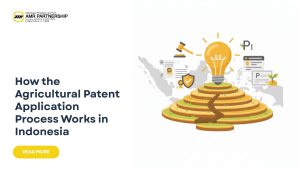
In today’s increasingly digital and brand-driven world, understanding trademark Indonesia is not only relevant but essential for businesses, creators, and legal professionals. As intellectual property becomes a core asset in many industries, distinguishing between copyright and trademark helps protect your work and brand more effectively. If you’re seeking legal clarity, you can explore expert assistance at AMR Partnership, a leading IP law firm in Indonesia.
READ MORE: Trademark Protection as a Crucial Step for SMEs to Survive in the Market
Understanding Copyright and Trademark in Indonesia
In Indonesia, copyright and trademark are two separate legal concepts governed by distinct regulations.
Copyright is regulated under Law No. 28 of 2014 on Copyright, while trademark is regulated under Law No. 20 of 2016 on Trademarks and Geographical Indications.
Copyright in Indonesia
Copyright protects original works of authorship such as books, music, software, art, photography, architecture, and more. The protection arises automatically upon creation without any registration. It gives creators the exclusive rights to reproduce, distribute, perform, display, or license their work.
Key aspects include:
- Duration: Lifetime of the author + 70 years (for moral and economic rights).
- Protected works: Literary, musical, dramatic, artistic, architectural, cinematographic, and computer programs.
- Registration: Not required but highly recommended to strengthen legal claims.
Trademark in Indonesia
Trademarks protect signs, logos, symbols, words, or combinations used to distinguish goods or services. Unlike copyright, trademark protection requires registration with the Directorate General of Intellectual Property (DGIP).
Key aspects include:
- Duration: 10 years, renewable indefinitely.
- Use-based: Applicants must prove use or intent to use.
- Subject to cancellation or revocation if unused for three consecutive years.
Trademark Indonesia becomes increasingly important in the way each form of protection is granted, applied, and enforced.
READ MORE: Intellectual Property Protection in Scientific Research and Publications
Importance of Trademark Use and the Malaysian Perspective
Trademark law in many jurisdictions—including Indonesia and Malaysia—requires that registered trademarks be actively used. Otherwise, they can be subject to partial or total revocation.
The Malaysian Case: Transferwise Ltd v Public Bank Bhd
A landmark case in Malaysia—Transferwise Ltd v Public Bank Bhd—demonstrates how non-use can affect trademark rights. In this 2025 decision, the Malaysian Court of Appeal ruled in favor of partial revocation of Public Bank’s WISE trademark, limiting its scope only to the banking and financial services it was actively using.
The case underlines a growing trend: governments and courts are demanding active use of registered trademarks.
Relevance to Indonesia
Indonesia’s trademark law also provides for cancellation of trademarks due to non-use. Article 74 of the Trademark Law allows any interested party to request cancellation if the trademark has not been used for three consecutive years after registration.
As a business owner or brand strategist, it’s crucial to understand this similarity. Registering a trademark is not enough; you must also use it actively to maintain exclusive rights.
To ensure proper protection and enforcement of your brand in Indonesia, businesses should consult experienced IP lawyers like those at AMR Partnership.
READ MORE: Copyright Protection in Photography and Visual Content
How Copyright and Trademark Support Business Strategies in Indonesia
When building a brand or launching creative products, many businesses in Indonesia overlook the dual need for copyright and trademark protection.
For example:
- A startup developing a mobile app will own the copyright in the code and visual design, while also needing a trademark for the app’s name and logo.
- A fashion brand may copyright its clothing designs and patterns, and register its brand name and label as a trademark.
Understanding trademark Indonesia helps protect both the creative work and the brand identity surrounding it.
Strategic Benefits for Businesses
- Copyright ensures ownership of creative outputs.
- Trademark builds brand recognition and commercial exclusivity.
- Using both offers layered protection, essential in today’s fast-moving digital markets.
READ MORE: Intellectual Property Rights in Education and Textbooks
The Role of AMR Partnership in Indonesian IP Protection
AMR Partnership is one of Indonesia’s most respected law firms specializing in intellectual property protection. They provide:
- Trademark registration and renewal services
- Legal advice on copyright ownership and enforcement
- IP audits and brand strategy consulting
- Legal representation in trademark disputes and cancellations
Their team understands both local and international IP frameworks, making them ideal partners for brands operating regionally, especially in light of cross-border enforcement trends like those seen in the Malaysia Transferwise case.
Don’t leave your brand vulnerable—secure your IP assets with expert help from AMR.
READ MORE: Protecting Advertising and Branding Assets
Trademark Enforcement and Risk of Cancellation in Cross-Border Contexts
The increasing alignment between trademark laws in Indonesia, Malaysia, and other ASEAN countries reflects a regional commitment to effective IP governance.
Key Enforcement Similarities:
- Non-use = risk of cancellation (3 years of inactivity).
- Need for registration to secure exclusive rights.
- Partial revocation accepted if some goods/services are unused.
This shared approach means that regional businesses must be proactive in using their trademarks, and ensure that every class or category claimed is genuinely in use.
Trademark Audit Best Practices
- Keep records of all marketing and sales tied to the trademark.
- Regularly review which classes the mark is being used for.
- Be ready to prove use if challenged by competitors or enforcement bodies.
AMR Partnership can help businesses navigate these regional nuances while ensuring local compliance.
READ MORE: Intellectual Property Rights in the Fashion Industry
Real-World Implications for Indonesian Brands and Startups
Let’s say an Indonesian fashion startup registers a trademark in multiple classes—apparel, accessories, and retail services—but only actively sells clothing. If challenged, the unused classes may be revoked, reducing protection.
Such a scenario mimics the Malaysian WISE case, where overclaiming leads to vulnerability. It’s better to be accurate and strategic, guided by professionals like AMR.
Avoiding Common Pitfalls
- Do not over-register: Only claim categories where you intend to operate.
- Regular use: Continuously use and promote your mark.
- Maintain documentation: Ads, invoices, online presence can support legal proof of use.
READ MORE: Protecting Intellectual Property in the Healthcare Industry
Future Trends: Harmonization of IP Laws in Southeast Asia
The ASEAN region is moving toward harmonized IP frameworks through agreements and cooperation under the ASEAN Working Group on Intellectual Property Cooperation (AWGIPC).
This shift means that:
- Trademark owners must understand overlapping legal standards.
- Disputes or challenges in one country may influence outcomes in others.
AMR Partnership stays ahead of these developments, offering clients regional strategies that align with both current laws and emerging trends.
For businesses that value long-term brand security, AMR is more than a legal partner—they are strategic IP allies.
For more information about AMR Partnership, feel free to contact us:
- Phone (Hunting): +62-21-29036668
- Fax: +62-21-29036672 to 75
- WhatsApp Customer Service: Click here to chat
- Instagram: @amrpartnership
- TikTok: @amr.partnership
- Facebook: Law Firm AMR Partnership
- Official Website: www.amr.co.id






